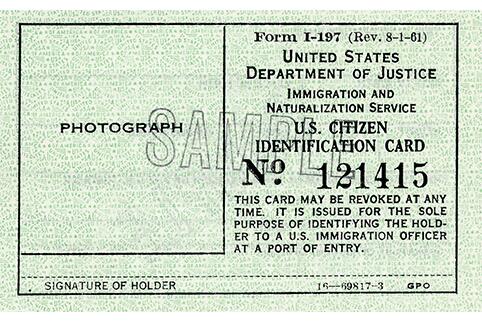the most cool guy said:
jacketman03 said:
the most cool guy said:
Ol_Ag_02 said:
the most cool guy said:
This is going to be a loser for Trump even though I wish it wasn't. Everybody in the United States is under the jurisdiction of the United States. There are a few limited exceptions, but a bunch of randos crossing the border illegally is not one of them. They're all under our jurisdiction. That's why we can bring them in front of an U.S. immigration court and have them deported. A court might say differently, but I doubt it. This will require a constitutional amendment and will never happen.
Immigration Courts are neither criminal nor civil courts. They're administrative offices under the DHS.
So your argument is flat out wrong.
Yeah, I'm a lawyer and well aware of that, and I've informed other posters of that here before.
Whether the proceeding initiated by the United States is civil, criminal, or quasi-criminal, you can only initiate the proceeding in the first place if there is jurisdiction over the defendant. Everyone in the United States is subject to the jurisdiction of the United States, again with very limited exceptions not applicable here.
I really don't understand this idea from many on here that the state and federal government can prosecute individuals who are not subject to the jurisdiction of the United States. I'm also a lawyer, and I have a current appointed client who is present in the US without lawful status. If the posters here were correct on what "subject to the jurisdiction thereof" means, then this client is being unlawfully prosecuted by a state that has no jurisdiction over him, and I should be able to get his case dismissed, and yet, I can assure you that's not the case.
I'm a little confused by your post but I think you're agreeing with me.
You are right. The very fact that somebody (citizen or not) can have civil charges, criminal charges, or quasi-criminal charges in an immigration court brought against them necessitates that they are subject to the jurisdiction of the United States.
The examples of voting, being drafted, and serving on a jury don't have anything to do with jurisdiction. They are just forms of public service and government participation that are required of, or reserved for, citizens.
If you can have federal charges brought against you, then you're under the jurisdiction of the United States. If you're going to argue that illegal aliens are not subject to the jurisdiction of the United States, then you would have to agree that they can't be charged and deported for illegally entering the country, but we know they can be. Ergo, they are subject to the jurisdiction of the United States.
Now, it is possible that the Supreme Court will take up this issue and say "illegal aliens and their children can be prosecuted for crimes or for immigration status, but we hereby hold that henceforth this kind of jurisdiction to prosecute unlawful activity is different from the 'jurisdiction' in the constitution that defines citizenship." But that is highly unlikely and I don't see it happening.
Okay, let me break it down for you (and anybody else who is confused by what "subject to the jurisdiction thereof" means):
1) if you can be haled into court, then you are subject to the jurisdiction of the government entity that has sanctioned the court.
2) if you are subject to the jurisdiction of the United States and you have a child in the United States, that child is a citizen by birth
3) not everybody physically present in the United States is subject to the jurisdiction of the United States. There are 3 categories of people physically present in, yet not subject to the jurisdiction of the United States, a) foreign diplomats and their families, 3) foreign citizens on a public ship owned by another country, and c) foreign troops of a hostile country currently in occupation of territory in the United States. If you're not in one of those 3 categories, you're subject to the jurisdiction
4) if you're not subject to the jurisdiction of the United States, you cannot be sued or prosecuted in the courts of the United States without the explicit permission of the foreign government that sent you to the US.
5) if illegal immigrants aren't subject to the jurisdiction of the United States, they cannot be charged with crimes, or be forced to appear in immigration court, or be forcibly removed from the US.
Edit: yes, we are in accord on the status of the law currently.





